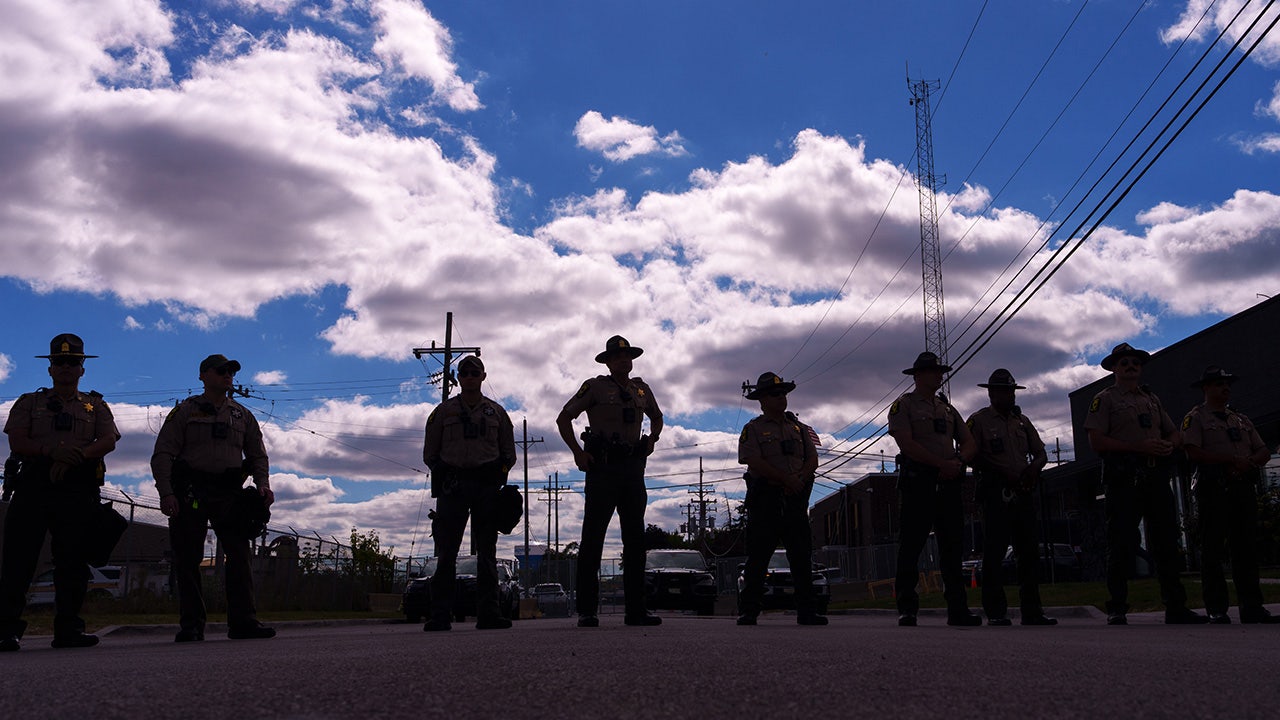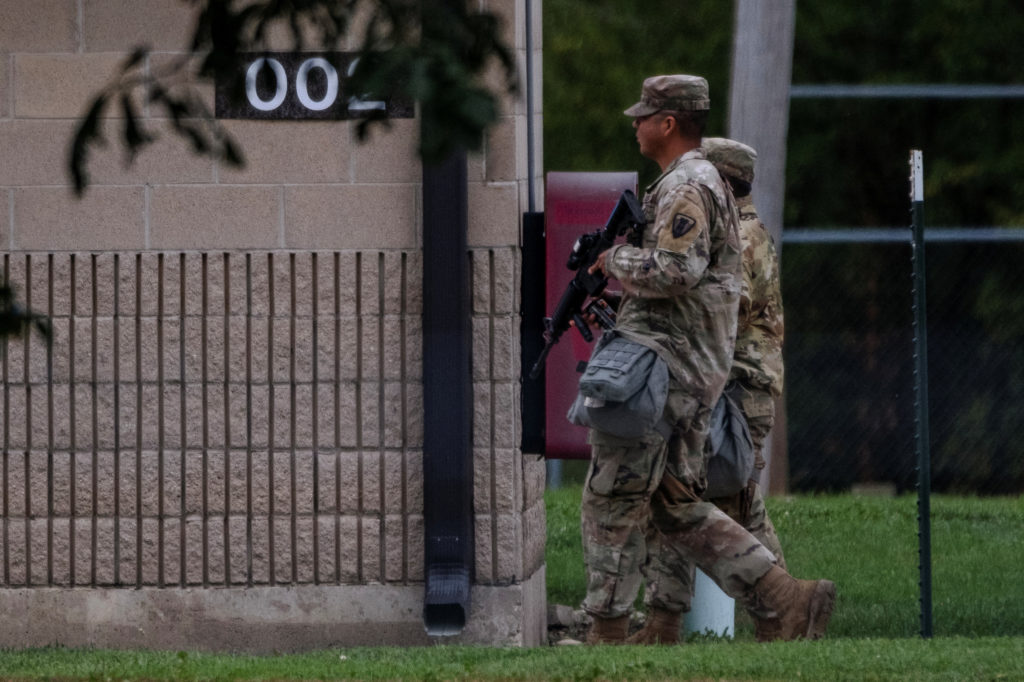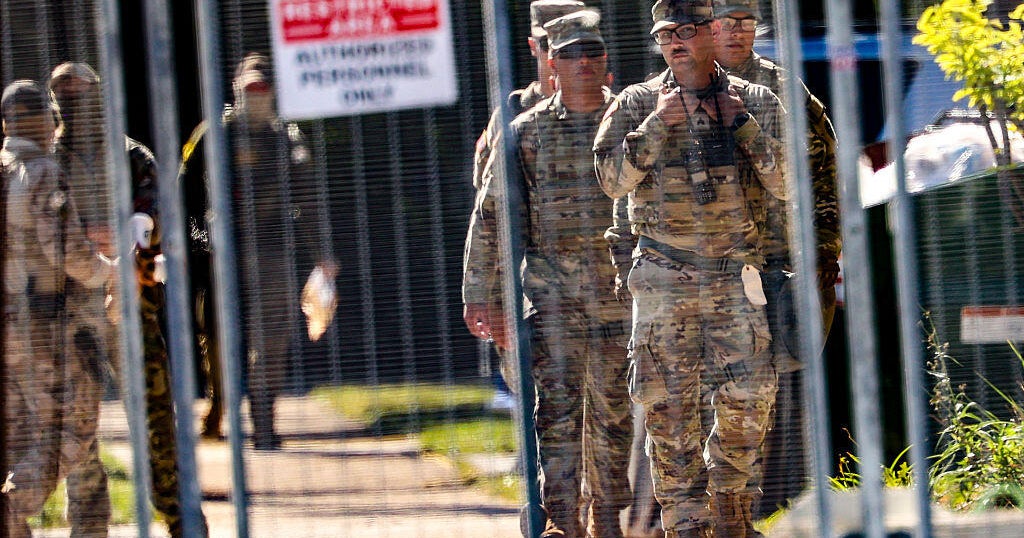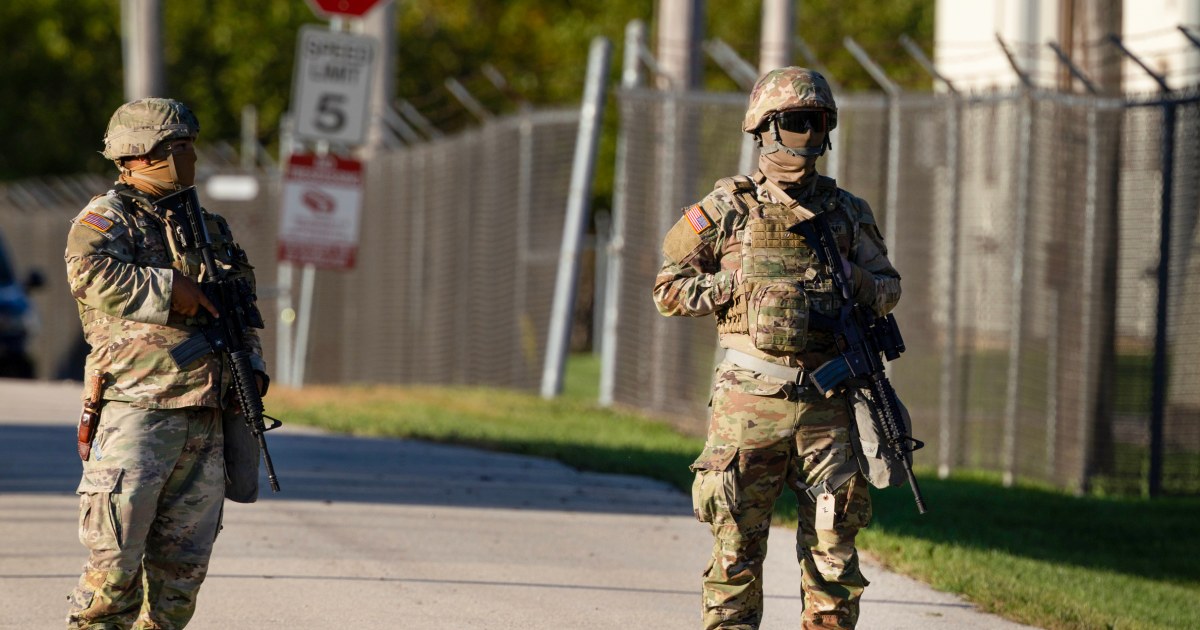Federal Courts Block Active Deployment of National Guard in Illinois, Denying Stay on Restrictions
Federal courts blocked active deployment of National Guard troops in Illinois, sent by President Trump, for federal property protection or patrols, citing no evidence of rebellion.
Subscribe to unlock this story
We really don't like cutting you off, but you've reached your monthly limit. At just $5/month, subscriptions are how we keep this project going. Start your free 7-day trial today!
Get StartedHave an account? Sign in
Overview
- Federal appeals courts and Judge April Perry ruled that National Guard troops, federalized by President Trump, can remain in Illinois under federal control.
- Despite remaining, the courts prohibited their active deployment for federal property protection or patrols, citing no evidence of a "danger of rebellion" in Illinois.
- Temporary restraining orders were issued by different courts, blocking the National Guard's deployment in Illinois for at least two weeks and throughout the appeals process.
- The courts denied a request for a stay on the deployment block, reinforcing restrictions amidst President Trump's broader immigration crackdown and ongoing disputes.
- This legal action stemmed from lawsuits by Illinois and Chicago against the Trump administration, following protests and confrontations at an ICE facility in Broadview.
Report issue

Read both sides in 5 minutes each day
Analysis
Center-leaning sources cover this story neutrally, focusing on the legal developments and presenting both sides of the dispute without editorial bias. They clearly attribute strong language to the involved parties, rather than adopting it themselves, and provide balanced context on the ongoing legal challenges regarding National Guard deployments across various cities.
Articles (11)
Center (5)
FAQ
The federal courts blocked the active deployment of National Guard troops in Illinois because there was no evidence of a danger of rebellion that would justify their use for federal property protection or patrols.
The restrictions were based on federal court rulings and temporary restraining orders issued in response to lawsuits by Illinois and Chicago against the Trump administration, which argued the deployment was unwarranted without a threat of rebellion.
Illinois and Chicago officials filed lawsuits against the Trump administration to block the federalization and deployment of National Guard troops, leading to court-issued restraining orders preventing their active deployment.
Yes, the federalized National Guard troops remain in Illinois under federal control, but they are prohibited from active deployment for federal property protection or patrols during the legal proceedings.
Similar legal disputes have occurred in other states like Oregon, where federal courts blocked the deployment of National Guard troops amid protests, indicating a broader pattern of legal challenges to federalized National Guard use in domestic protests.
History
- 23d

 7 articles
7 articles







